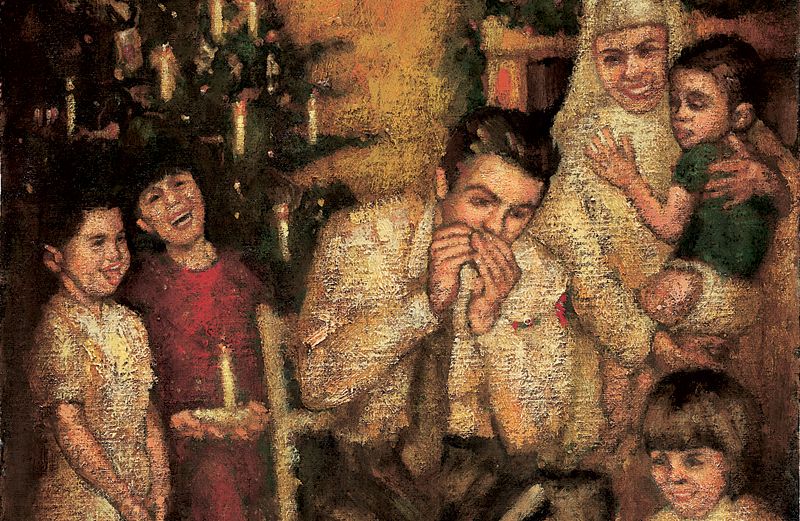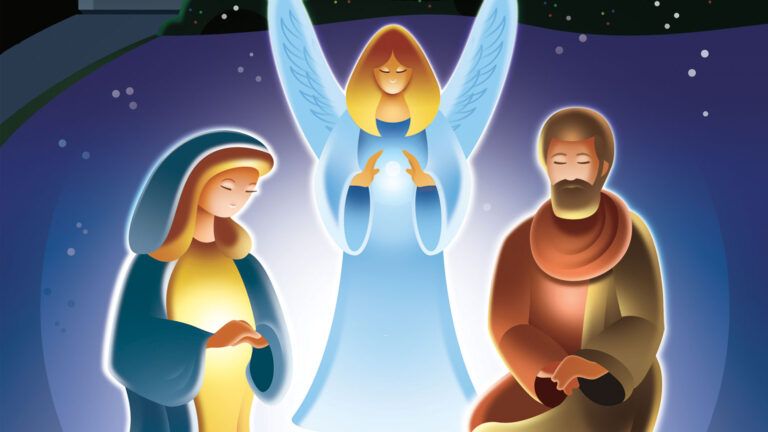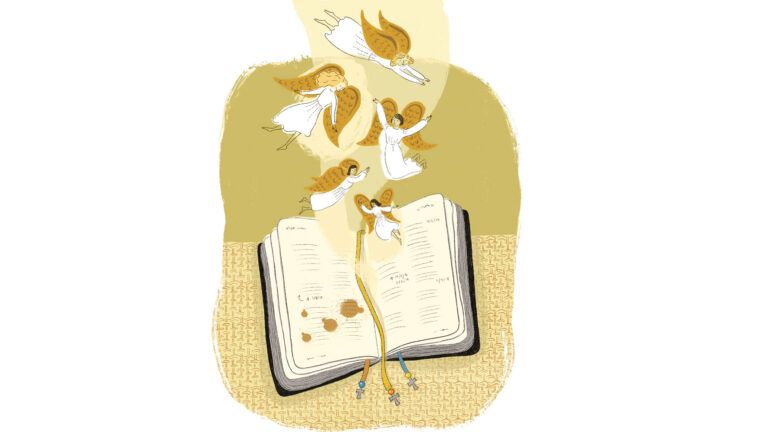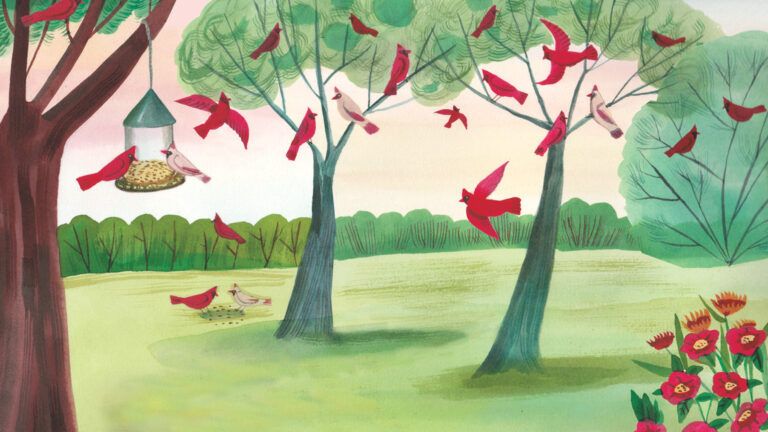Elsewhere in the world it was Christmas Eve. The calendar said December 24, 1944, but it seemed impossible.
This was no holiday for us American soldiers, out in the snow-covered forests of the Ardennes Mountains, in Belgium along the German border. We were far from home, battling subzero cold, and the enemy was all around us.
Most of us were young college graduates, trained as pilots or bombardiers in the Air Force. But there was a shortage of B-17s for us to fly, so we’d been assigned to the ground troops and reduced in rank from lieutenant to private.
The men involved had little or no infantry training. I’d been made a medic only because I’d taken science courses in college and had worked with the ambulance corps back home.
“You’ll learn on the ground,” our commanding officers told us. Rumors said the war was nearly over, and we’d been sent to a “soft spot,” not considered dangerous.
But Hitler had other plans for the Ardennes. On December 16, only 11 days after we arrived in Belgium, we’d been hit by the full force of the German army. Twenty-two armored divisions roared through the mountains on an 80-mile front, destroying everything in their relentless drive toward the English Channel.
The vroom-vroom-vroom of German tanks surrounded us in the forest. Buzz bombs howled overhead. Some of us dug a fox hole for cover. Some huddled in the back of trucks. We were terrified. The enemy was everywhere.
“Seems like the good Lord is helping Adolf,” someone said, “and not us.” This December 1944 onslaught came to be known as the Battle of the Bulge, one of the deadliest conflicts of World War II.
My medical company was part of the 106th Infantry Division, which had sustained severe casualties. Hundreds of prisoners were taken.
On the afternoon of Christmas Eve, we received orders to provide medical aid for a division regiment. There was only one problem. We didn’t know how to find them. Our units had become split up.
There were about 40 of us in place, with a couple of trucks, Jeeps and a supply trailer. Scouts were sent out to find information because we were forbidden to use the radio. We had no idea where we were.
I had never felt so very far from everything I had ever known, from God and the family who loved me. We were lost. I prayed that the war wasn’t lost as well.
“We’re near St. Vith,” our captain told us. “That’s all we know.” St. Vith was a railroad center, and the Germans had destroyed the village. We cautiously drove across rolling farmland. As night set in we hoped to find a place to sleep.
Soon, down the road to the left, we saw a large group of buildings in the lengthening shadows of the trees. “Maybe we can bunk there tonight,” the captain said. Our vehicles came to a stop, and two sergeants were ordered to approach the property and check it out.
“Mathias,” called the captain, “you go too, just in case.” I saluted, knowing full well what he meant by “just in case.” I could speak some German. Enemy soldiers might be lurking inside.
The two sergeants and I walked slowly to the large, metal-reinforced doors of the main building. The older sergeant raised the knocker and banged it loudly.
We waited, glancing nervously at each other. None of us knew what to expect, and the waiting made it worse. There was no response. We shrugged, almost ready to leave.
But then the door creaked open, slowly at first, faint light from inside spilling out onto the ground. I held my breath. A startling sight awaited us as the door opened wide.
Two women in white robes stood there in the shadows holding candles. Two nuns, wearing high, starched head-dresses, like halos around their heads.
With one glance at our uniforms, the nuns could see we were Americans. “Welcome,” they said. “Guten Abend! Willkommen! Bon jour!” they added, in a happy blur of German and French. We quickly summoned the others in our unit, and all of us cold, exhausted medics moved into the warm, candlelit building.
More white-robed nuns welcomed us. More smiling faces framed by high headdresses. In one corner of a room was perhaps the most startling sight of all: a Christmas tree, glistening with sparkling ornaments and candles.
The men and I looked at one another. No words were necessary, except for our prayers of thanksgiving. This was the most beautiful tree we’d ever seen.
“Come,” said the nuns, leading us through glass doors. We entered a large room, and all of us stood dumbfounded.
The room contained a combat soldier’s ultimate dream: real beds, complete with blankets, feather mattresses and pillows. We had slept fitfully for weeks on the icy ground or crouched in the back of a truck.
I looked up to see a statue of Christ gazing down from the marble mantel of a fireplace, seemingly pleased at our awe and delight. This indeed must be heaven, I decided.
Our chaplain led us in a prayer, and each of us lit a candle and placed it on the mantel at Christ’s feet. I no longer felt so far from home. My thoughts were with my parents, and my dear Lois, my wife of only two years. I saw the others close their eyes, and I knew they were with their loved ones too.
Buzz bombs could still be heard, roaring somewhere above us. We were in the middle of the most devastating war in history, but how could this be more like Christmas Eve?
As if in answer, the sweet strains of a child’s voice began to fill the room, floating through the open door. It was a refugee girl singing Christmas carols and hymns in a language I didn’t understand, but celebrating the same sacred birth recognized around the world.
The nuns later explained that the war had displaced thousands of children, and we GIs were invited to the cellar, where some 80 frightened orphans had been given sanctuary. Packs of gum, chocolate and smiles gradually broke the language barriers, and soon the kids were climbing onto the soldiers’ laps.
The clowns in our outfit made the kids laugh with their antics. One, with his harmonica, had them singing American songs like “Jingle Bells,” “I’ve Been Working on the Railroad” and “Red Sails in the Sunset.” We even sang “O Tannenbaum” and “Silent Night” in German!
Finally the nuns sang a good-night song with the children and all of us GIs dispersed to that glorious bedroom, where we slept soundly under the watchful gaze of Christ.
It was Christmas after all, and the miracle was real to me in a way it had never been before. We were not lost, as I’d feared, nor would we lose this war.
On this holiest of nights, we’d been led to a place of sanctuary, and greeted by angels at the door.
Download your FREE ebook, Angel Sightings: 7 Inspirational Stories About Heavenly Angels and Everyday Angels on Earth






